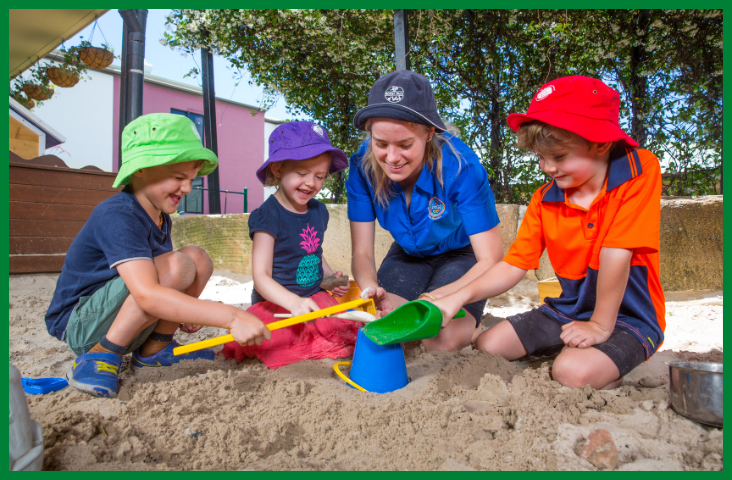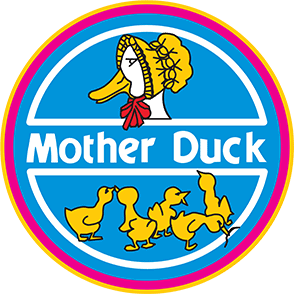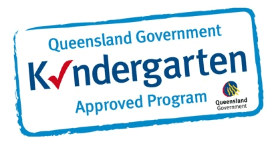
What does it really mean to support children’s transitions to school
A conversation that regularly happens within the Early Childhood sector is the conversation around “school readiness programs”. Do you have a transition-to-school program? Is ‘school readiness’ part of your service? There is a “push down” curriculum, a term used to describe formal education that is trying to enter the birth to five space and we need to consider what are children even supposed to be ready for? There is a much bigger picture to consider when determining whether or not your child is ready to begin school. We have a responsibility as early childhood teachers to share with families about what works in an early childhood environment and the importance of life learning and whole child development.
A high-quality play-based, child-centred program provides the most holistic foundation for a young learner to take their next step of their learning journey. Why? – Because it teaches them to love learning. To be curious. To be confident enough to ask questions. To problem solve independently and alongside peers when faced with problems. To be creative in their thinking and approach to learning, as they learn time and time again there are multiple ways to come to an answer.

There is no doubt that early literacy and numeracy skills play a central role in a child’s successful transition to school. In a high-quality play-based early learning program, this will be covered in so many meaningful ways. Skills and dispositions to support a positive transition can be learned through a number of ways – not necessarily by sitting at tables for extended periods of time completing activity or interest-oriented tasks. This method of thinking and learning is dated and does little to appropriately support children as active, engaged and involved learners. It teaches them to effectively sit at tables and follow direction and instruction – not necessarily an effective way to ‘learn’ or extend their learning and understanding. 21st Century skills such as adaptability and creativity are quashed by a directive and task-oriented learning space.
Play-based learning isn’t about letting children run free with no guidance or support. It’s about creative teaching, supporting children’s thinking into teachable moments over time, letting children make mistakes along the way so they have an opportunity to problem solve, and inspiring children to become independent learners.
At Mother Duck Childcare and Kindergartens, independent learning is nurtured through a curriculum guided by inquiry, curating environments and developing skills in social responsibility. Here, learning is guided by intentional critical reflection with all teachers and children are encouraged to make decisions and plan their ideas and understanding within the areas of key languages (Clay, Construction, Mark Making, Delicate Materials) – both independently and guided according to their needs.

This system enables children to build social and emotional skills to collaborate with their peers, concentrate on tasks for increasing periods of time, and seek help to solve problems when needed – all very important ‘school readiness’ skills. Small group times at Mother Duck are called ‘Morning Meetings’ where children Acknowledge Country and learn to sit alongside their peers, listening to their teachers and peers, share stories and contribute when they feel ready in this ‘safe space’ – a meaningful way to create a sense of identity as part of a group, building executive function and self-regulation within daily rituals. Another key ‘school readiness’ box ticked.
Most kindergartens have become more flexible in their approaches to teaching and learning, and although it is helpful, rarely will a school require children to learn the alphabet, write their name or recognise numbers. A strong social and emotional learning foundation will play an important role for future academic learning to flourish.

Pasi Sahlberg, the author from “Let The Children Play” and a researcher at the Gonski institute at the University of Sydney says, before we can expect school learning among our children to improve, we need to help them feel better, be healthier and even happier in the school and experience learning as a positive thing and that play, if children are exposed to it properly and consistently, in home and school we can do all of these things.
What is most important is quality. High-quality, well-resourced spaces with trained staff who share the same philosophy, passion and vision for learning. If a child’s love for learning is nurtured and they build strong social and emotional skills, they will be ‘school ready’.


